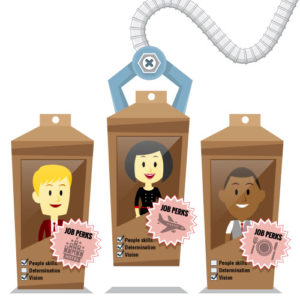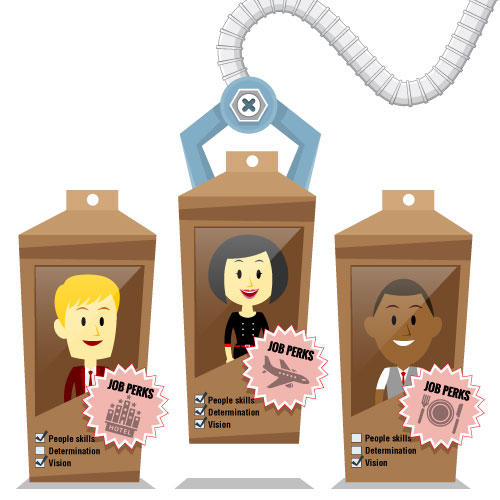As the competition for next-gen talent heats up, travel and tourism companies must have a game plan. By Paige Lee Pei Qi

As Asia’s travel and tourism industry primes itself for an unprecedented growth, it is also heading for a labour crunch of unseen proportions.
The World Travel & Tourism Council has hailed this as the fastest expansion rate of any region in the world – by more than six per cent each year over the next decade. By 2020, Asian travellers will account for nearly one-half of all global tourism expenditures.
However, according to a TravelRave 2013 report produced by the Singapore Tourism Board (STB), the industry in Asia is projected to face a labour shortage of about eight million jobs in the next 10 years.
During a roundtable in Singapore on developing human capital and talent management co-organised by TTG Asia Media and STB in July, the spotlight was on how to attract Millennials (born between 1981 and 1995) to the industry.
STB assistant chief executive, Neeta Lachmandas, said: “As we look at consumption patterns, the reality is that Millennials are going to consume differently. If we want to be relevant to them, I hope we are bringing in young talent into the industry and using the talent to design experiences for the future.”
Among the solutions raised included raising awareness of the range of opportunities in tourism and the international exposure the industry offers.
Patina Hotels & Resorts CEO, Marc Dardenne, explained: “Today we have to take a different approach and re-invent the way we approach the Millennials.”
Emphasising the need to professionalise the industry, East West Planners Singapore CEO, Janet Tan-Collis, who is also president of the Singapore Association of Convention and Exhibition Organisers and Suppliers, said the association has been tailoring its programmes to a younger crowd by developing internationally recognised courses.
Other trade professionals approached separately by TTG Asia agreed that more had to be done.
Andreas Sungaimin, senior vice president, human capital & development, Pan Pacific Hotels Group, said: “Millennials are positive, confident and goal-oriented – all of which are excellent traits for success.
“However there is a tendency for them to move quickly between jobs to explore different options. Thus, the challenge would be to create an attractive and rewarding work environment.”
To lure such job seekers, Sungaimin said the Leadership Apprentice Programme, which targets young adults in their early 20s, aims to groom and fast-track identified individuals for management positions through work rotations across the different operational functions.
When it comes to existing staff, Starwood Hotels & Resorts has a one-year talent development system exclusively designed for its Asia-Pacific division. It comprises three distinct clusters – executive, mid-management and entry level – in order to prepare promising talents for the next stage of their careers. The associate should have the ability to be promoted to the next level within the next 24 months.
Similarly, the Kuala Lumpur Convention Centre in Malaysia introduced the Talent Acceleration Programme (TAP) in November 2013.
Director of human resource, Rohizat Baharum, said: “The programme entails field trips, experiential learning sessions, and internal and external leadership sharing, among others. Participants are exposed to competencies such as commercial awareness, customer focus, decision making, change management and teamwork. Upon completion, TAP graduates will be eligible for higher positions within the organisation.”
Another activity popular with Gen Y staffers is the Chat with Alan sessions – monthly informal chats for up to nine team members with general manager, Alan Pryor.
In terms of leveraging technology to attract and retain this demographic, Dylan Choong, HR director, Asia-Pacific, Starwood Hotels & Resorts, shared that the hotel group reaches out on social media platforms to share industry success stories.
He said: “Millennials have a stronger need to be recognised as individuals partly because of a longer educational undertaking and tougher economy today.
“With exposure to social media, Millennials tend to demand connectivity, instant responses and gratification.”
Chan Brothers Travel Singapore marketing communications manager, Jeremiah Wong, added: “This group of workers has grown up with access to cutting-edge technology and have integrated them seamlessly into their daily lives…any lack of reliable and up-to-date technology is probably going to cripple their work productivity.”
However, Tour East Singapore group vice president of sales and marketing, Judy Lum, warned against going too far.
She said: “Many of the Millennials are tech-savvy and they assume this is the all-important factor…they may lack the skill and understanding to deal with people face-to-face to foster respectful relationships.
“We have to be careful and manage their ideals as this industry needs more EQ than IQ.”
Regent Hotel Singapore, director of administration, Wong Kwee Lian, opined that although change has to come from within the industry, she pointed out that Millennials also had to have appropriate expectations.
“While corporations adapt to the Millennial mindsets with a more collaborative culture, Millennials need to understand that change takes time,” said Wong.
Additional reporting by S Puvaneswary
This article was first published in TTG Asia, August 22, 2014 issue, on page 4. To read more, please view our digital edition or click here to subscribe.




















